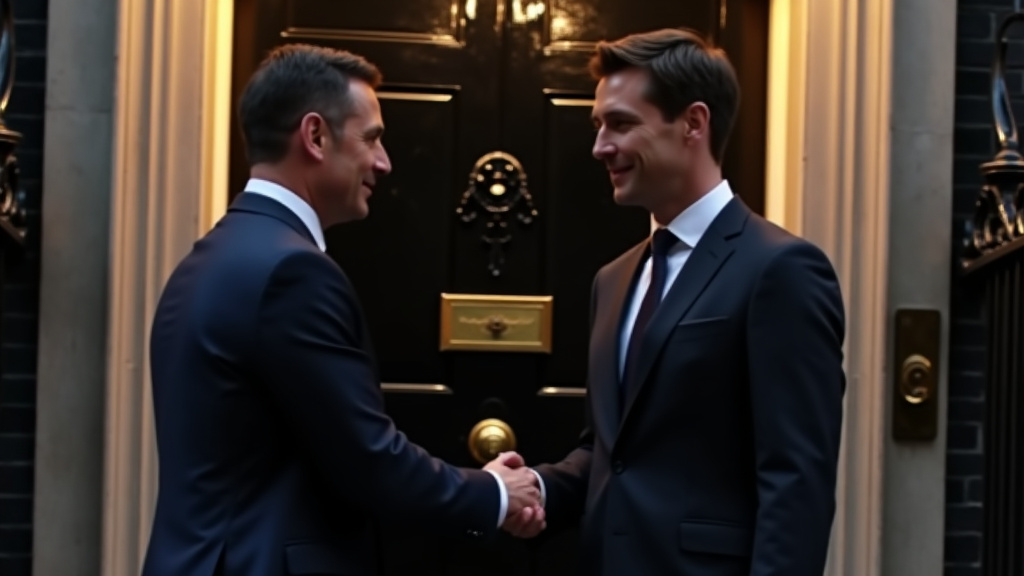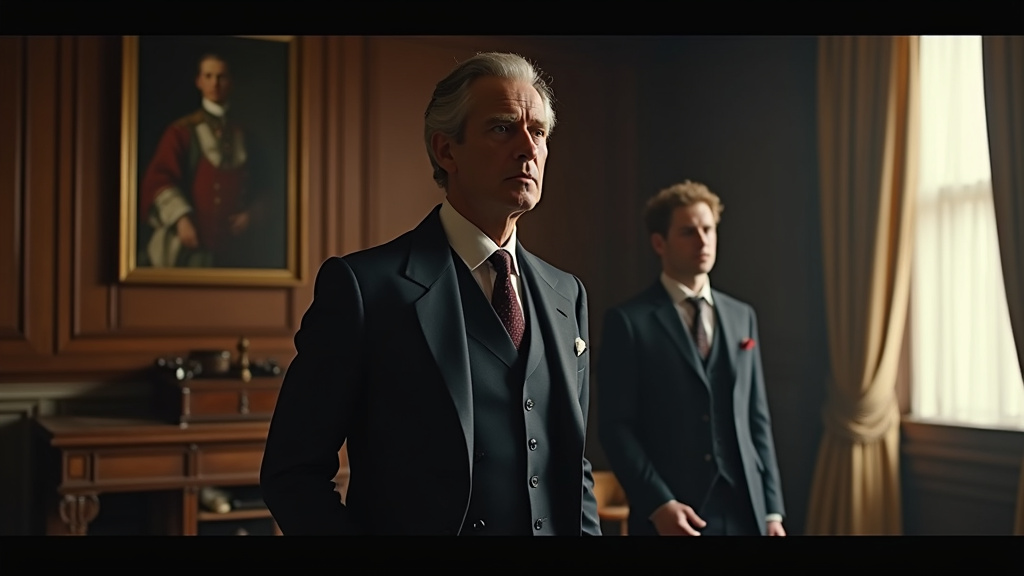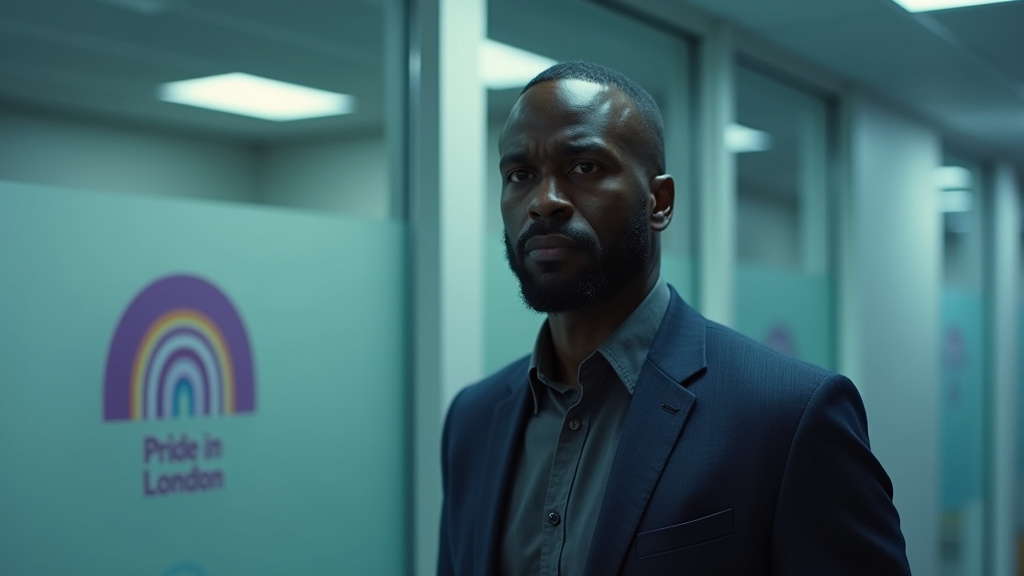In a rapidly unfolding series of diplomatic maneuvers that could redefine the geopolitical landscape, Ukrainian President Volodymyr Zelenskyy arrived in London on Thursday, August 14, 2025, for an unannounced, yet highly significant, meeting with British Prime Minister Keir Starmer. This pivotal encounter at Downing Street unfolded just hours before a much-anticipated U.S.-Russia summit between Presidents Trump and Putin, set to grip global attention from the distant reaches of Alaska. The timing of President Zelenskyy’s visit to the UK capital underscored the urgent need for solidarity and strategic alignment among allies as Europe braces for discussions that could profoundly impact the future of Eastern Europe and beyond. This visit quickly became a top news story across international media outlets.
A Show of Unity at Downing Street
The meeting between President Zelenskyy and Prime Minister Starmer, held at the iconic Downing Street residence in the heart of London, was characterized by a distinct absence of formal public declarations, yet its visual impact was undeniable. Upon President Zelenskyy’s arrival, a warm embrace between the two leaders outside Starmer’s offices served as the primary, unspoken statement. This public display of camaraderie, captured by waiting cameras despite the lack of official press briefings, immediately resonated across international news channels, suggesting a robust and unwavering bond between the United Kingdom and Ukraine. This spontaneous show of solidarity, a powerful symbol of alliance, quickly became a viral moment, dominating social media feeds and news bulletins as a symbol of steadfast support. While no specific agenda points were disclosed immediately after the talks, observers suggested the encounter aimed to publicly reaffirm the UK’s steadfast support for Kyiv, particularly as the international community watches with bated breath the impending dialogue between Washington and Moscow.
Pre-Summit Diplomacy: A Strategic Precursor
The visit’s strategic timing, occurring precisely the day before the crucial U.S.-Russia summit, cannot be overstated. With Presidents Trump and Putin poised to engage in high-level discussions in Alaska, the international community, and particularly Kyiv and its Western partners, are reinforcing their unified front. This impending summit carries immense weight, as any agreements or disagreements reached between the American and Russian leaders could profoundly reshape the geopolitical dynamics surrounding the ongoing conflict in Eastern Europe. The objective of President Zelenskyy’s visit to London was thus multifaceted: to explicitly showcase continued British support for Ukraine, thereby bolstering Kyiv’s position, and to ensure that the voice of Ukraine and its allies is amplified on the eve of such critical bilateral talks. This demonstration of sustained diplomatic backing sends a powerful message to all parties involved, particularly as the leaders prepare to discuss matters that undoubtedly touch upon Ukraine’s sovereignty and territorial integrity. Such high-level engagements underscore the complex tapestry of international relations, where every handshake and every unannounced visit forms part of a larger, evolving narrative. The pressing nature of this unfolding situation has made it the cover story across global news outlets today.
Expanding European Engagements
President Zelenskyy’s trip to London follows closely on the heels of another significant European engagement, highlighting a broader diplomatic offensive by Kyiv. Just prior to his UK visit, the Ukrainian leader held a crucial meeting with German Chancellor Friedrich Merz. This sequence of high-profile consultations with key European leaders—first Berlin, then London—underscores Ukraine’s relentless efforts to fortify its alliances and ensure a cohesive international response amidst ongoing geopolitical challenges. These discussions are pivotal in maintaining the current against any potential shifts in global policy that might emerge from the U.S.-Russia talks. The consistent engagement by President Zelenskyy with Western European powers signals a concerted effort to keep Ukraine’s plight and its strategic importance at the forefront of the global agenda, making it a trending topic in diplomatic circles. The news of these diplomatic efforts continues to spread widely, keeping the world informed.
Conflict’s Shadow: The Rostov-on-Don Attack
Even as diplomatic efforts intensify on the global stage, the harsh realities of the ongoing conflict continue to cast a long shadow. In a stark reminder of the persistent tensions and escalating hostilities, a Ukrainian drone attack occurred in Rostov-on-Don, Russia. This incident, which unfolded recently, resulted in the injury of 13 civilians, according to reports. The drone strike in Rostov-on-Don serves as a grim backdrop to the diplomatic ballet unfolding in London and the impending summit in Alaska, illustrating the direct and devastating consequences of the conflict on civilian populations. Such events underscore the urgency and fragility of the peace process, highlighting the human cost of geopolitical strife and the complex challenges facing world leaders as they navigate this fraught period.
As the world’s attention now pivots towards Alaska for the much-anticipated Trump-Putin summit, the discussions held in London between President Zelenskyy and Prime Minister Starmer resonate with profound significance. These concerted diplomatic efforts represent a crucial attempt by Ukraine and its allies to shape the narrative and solidify support ahead of high-stakes negotiations that could significantly alter the trajectory of the conflict. The blend of visible solidarity in London and the stark reality of continued hostilities, exemplified by the Rostov-on-Don attack, paints a complex picture of a continent on edge. The coming days will reveal the immediate outcomes of these diplomatic overtures, but the clear message from London is one of unwavering resolve and continued support for Ukraine as it navigates the treacherous waters of international power politics.





